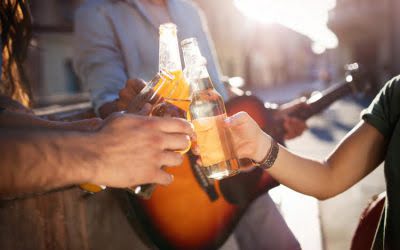This includes options for NHS support, links to charities, helplines and communities, and tips on self-care. A good way of keeping track of how much you’re drinking – to help spot patterns, avoid your triggers and stay within the low risk drinking guidelines – is with the MyDrinkaware app. Physical symptoms can include changes in appetite or http://psychology.net.ru/articles/content/1099575747.html weight (usually decreased, but sometimes increased), lack of energy, low sex drive and disturbed sleep. If you need urgent help with your mental health, you don’t have to struggle alone. Atypical medications, also referred to as second-generation antipsychotics, have become some of the most prescribed medication to help treat depression.
Advanced Treatment
- Since alcohol can cloud your brain, it can keep you from seeing helpful solutions to problems.
- In fact, as the effects of alcohol recede, you may actually feel more depressed.
In the context of what we are exploring here, it’s when a person drinks alcohol with the goal of medicating their feelings. Long-term heavy https://hmpt.ru/viewtopic.php?t=688 drinkers may be predisposed to developing an anxiety disorder. However, there is no evidence that moderate drinking will cause anxiety.
Americans increasingly feel isolated and lonely

Alcohol misuse and depression are serious conditions that you shouldn’t ignore. If you think you have a problem with either, talk to your doctor or therapist. There http://alfawebstudio.ru/gmo1.html are lots of choices when it comes to medication that treats depression, and there are drugs that lower alcohol cravings and counter the desire to drink heavily.
Depression and Alcohol Misuse
- In the absence of the data necessary to establish recommended drinking levels for depressed patients, clinicians may need to conduct an idiographic assessment to determine the potential influence of alcohol use on depressive symptoms for a particular patient.
- We interviewed FOLX clinician Jess (she/they), DNP drawing upon their experience serving transgender, nonbinary, and other gender-nonconforming patients providing gender-affirming care.
- And if you’re worried about your drinking, there are alcohol support services that can help.
- AUD and depressive disorders appear to share some behavioral, genetic, and environmental risk factors, yet these shared risks remain poorly understood.
- For many depressed patients, drinking may interfere with the successful treatment of their depression.
- Physical symptoms can include changes in appetite or weight (usually decreased, but sometimes increased), lack of energy, low sex drive and disturbed sleep.
- They’ll help you identify which thinking style you identify with and then help you challenge those thoughts.
His research focuses on the intersection of primary care, mental health, and substance abuse treatment. Similarly, the majority of alcoholics admit to experiencing periods of nervousness, including at least 40 percent who have had one or more intense panic attacks characterized by a brief episode of palpitations and shortness of breath (Kushner et al. 1990). There are a multitude of different treatment options available for those struggling with depression and an alcohol use disorder. It is important to understand that while it can be helpful to know the different types of treatments available, what is most important is deciding to seek treatment in the first place.

